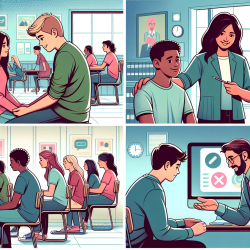Introduction
In January 2023, British Columbia embarked on a groundbreaking journey by implementing a three-year exemption to the Controlled Drugs and Substances Act, decriminalizing the personal possession of small amounts of certain illegal drugs. This initiative, aimed at reducing overdose deaths and stigma, presents a unique opportunity for practitioners to enhance their skills and contribute to positive community outcomes. This blog delves into the findings of a recent study on the awareness and knowledge of this decriminalization policy among people who use drugs (PWUD) in British Columbia and explores how practitioners can leverage these insights to foster better understanding and outcomes.
Understanding the Research
The study titled "Awareness and knowledge of drug decriminalization among people who use drugs in British Columbia: a multi-method pre-implementation study" provides a comprehensive analysis of PWUD's awareness and understanding of the decriminalization model. The research utilized both quantitative surveys and qualitative interviews conducted from September to November 2022, just before the policy's implementation.
Key Findings
- Approximately 63% of PWUD were aware of the decriminalization policy, but significant knowledge gaps existed regarding legal protections, such as threshold amounts and substances included.
- Qualitative findings revealed misunderstandings about the policy, with many conflating decriminalization with regulation or legalization.
- Information sharing about decriminalization was minimal pre-implementation, highlighting the need for effective knowledge dissemination strategies.
Implications for Practitioners
As practitioners, understanding these findings is crucial for developing strategies to improve knowledge dissemination and empower communities. Here are some actionable steps:
- Enhance Communication: Develop clear, accessible educational materials that demystify the decriminalization policy and its implications. Utilize multiple platforms, including social media, community workshops, and collaborations with local organizations.
- Engage with the Community: Foster open dialogues with PWUD and community stakeholders to address misconceptions and provide accurate information. Encourage community-led initiatives to promote understanding and support.
- Promote Empowerment: Equip PWUD with the knowledge and resources to understand their rights under the decriminalization policy. This can reduce stigma and enhance access to health and social services.
Encouraging Further Research
While the current study provides valuable insights, further research is needed to assess the long-term impacts of decriminalization and identify effective strategies for knowledge dissemination. Practitioners are encouraged to engage in or support research initiatives that explore these areas, contributing to a more comprehensive understanding of the policy's effects.
Conclusion
The decriminalization of drug possession in British Columbia represents a significant shift in addressing the overdose crisis. By understanding and implementing the findings of this study, practitioners can play a pivotal role in enhancing community awareness, reducing stigma, and promoting positive outcomes. To delve deeper into the research, please read the original paper: Awareness and knowledge of drug decriminalization among people who use drugs in British Columbia: a multi-method pre-implementation study.










